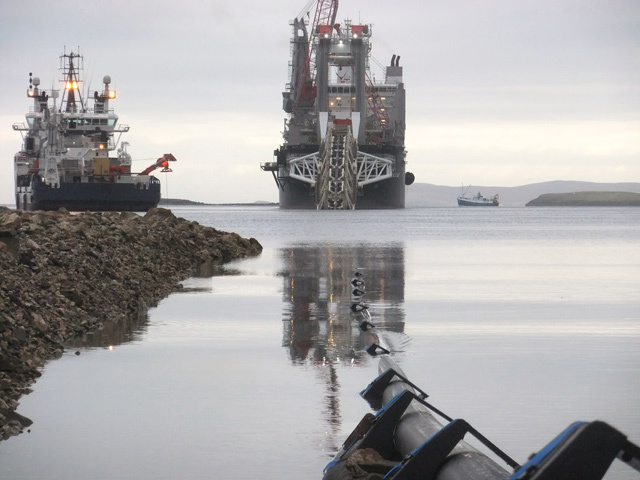
Lerwick harbour is this week celebrating 50 years of involvement in North Sea oil and gas.
Records suggest the port links with the industry began when two seismic survey ships operating east of Shetland sought shelter there.
A newspaper report on July 3, 1964, said US vessel Cedar Creek and the Dutch ship Runmond III were surveying for Western Geophysical on behalf of a UK oil firm, having been stormbound in Lerwick the previous weekend.
They both headed for Norway after their work was done, with their crews unaware their Shetland stopover most likely marked the start of transformational change for the islands’ fortunes.
“Oil-related vessels weren’t recorded separately from general ships through the 1960s,” said Lerwick Port Authority (LPA) harbourmaster Calum Grains.
“Only with increasing activity in the 70s were they categorised and counted by their types.
“Research by our staff and recollections from the then shipping agent at Hay and Co led to these two vessels, which are believed to be the first oil-related ships into Lerwick.”
He added: “By way of comparison, Cedar Creek, at 151 gross tonnes, is around the size of the port’s current vessel, Kebister.
“The then fairly new stern trawler Runmond III, at 241 gross tonnes, is comparable to a modern local white-fish vessel.
“Seismic ships now calling at Lerwick can be significantly larger – some vessels weigh in at over 10,000 tonnes.”
Around 40,000 oil and gas-related ships have called at Lerwick since they were first categorised in the port’s records in the 1970s.
Grains said the impact on the local economy since Cedar Creek and Runmond III visited had been immense.
“No one could have guessed then what these two vessels heralded for Shetland in oil and gas activity and the impact on the economy and community over the next five decades.
“Or that, 50 years on, development would still be continuing onshore and offshore, with years of production to come, and that we would still be investing in the port to make the most of more new opportunities.”
The offshore industry is a major beneficiary of investment by the LPA, which plans to spend another £30million-plus on improvements over the next few years.
Future investment will create another 5,900ft of quay.
Recommended for you
